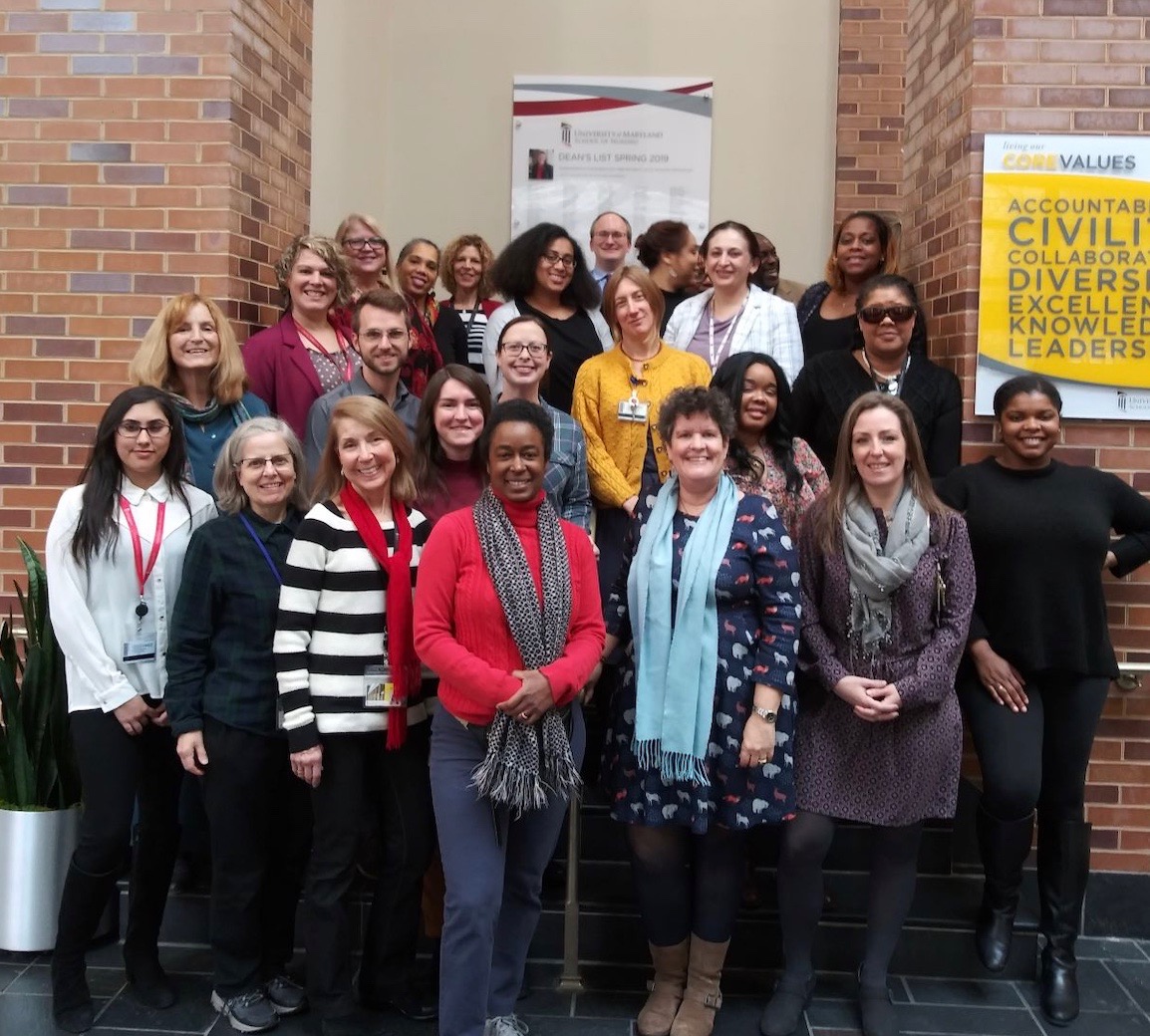UMSON Has 21 Restorative Justice Facilitators Among Faculty and Staff
April 17, 2020 Giordana Segneri
The group can facilitate group discussions upon request from individuals or departments who want to utilize restorative justice practices to address harm, make plans, or solve problems in a new way.
The School of Nursing now has 21 restorative justice (RJ) facilitators who logged 24 hours of training, Jan. 21 - 23. The group is composed of faculty and staff who have agreed to facilitate discussions upon request from individuals or departments who want to utilize restorative justice practices to address harm, make plans, or solve problems in a new way.
The professional trainers, Kirstin Hocker and Toni McMurphy from the University of San Diego Restorative Justice Project, established ground rules with the group and then led the discussion aboutwhat people value about living and working in a community and what related barriers can be. The trainers asked the group various questions to help the participants get to know one another better and to illustrate some basics in building a positive sense of community.
The principles of restorative justice include:
- decision-making is in the hands of the people involved in the situation
- people who cause harm must take responsibility and make amends
- a focus on reparation and healing
- rebuilding trust when harm has occurred.
The UMSON RJ facilitators learned how to lead circle discussions, which focus on taking the time to listen closely to one other and respond with authenticity and sincerity. In an RJ circle, all members have equal standing; there is no hierarchy, and all voices are given the opportunity to be heard. The facilitator (or Circle Keeper) asks questions to elicit the wisdom from the group but does not make decisions for the group. A talking piece, a small item passed from person to person, designates who has the floor until that person passes it along to someone else.
When addressing harm, instead of seeking to blame and punish someone who has caused harm, the focus is on helping make the person who was harmed as whole as possible, and it requires that all participants be willing to be part of the RJ process. For example, a student who cheats on a test may be required to present a training on tutoring and other academic assistance programs available to students and may be encouraged to apologize to the faculty member. The student and the faculty member would also have a facilitated conversation about the impacts cheating has on faculty and other students. Another aspect unique to RJ is that the student who cheated would have an opportunity to talk about the impact getting caught has had on him/her. The emphasis is on finding a way to prevent this behavior from happening again by getting to the root cause and finding a solution instead of punishing or shaming.
When using RJ practices to solve problems, the group spends time identifying the needs and feelings of those impacted by the problem before brainstorming solutions. Taking the time to consider the needs of others in an intentional way can significantly change the trajectory of the discussion and the outcome.
The indigenous people of New Zealand who originated these practices believed that people are all interdependent. Because of this, they highly valued relationships and made concentrated efforts to foster and maintain them. The RJ facilitators are bringing their new skills to UMSON to help bolster and repair, when necessary, the relationships among those in the School in an effort to make this a better place for everyone.
The group of facilitators is led by faculty member Hannah Murphy Buc (contact her with questions or to request assistance for facilitation) and supported by the Office of Diversity and Inclusion. The facilitators are:
- Jeff Ash
- Cailin Barker
- Hannah Murphy Buc
- Stacey Conrad
- Kirsten Corazzini
- Lori Edwards
- Larry Fillian
- Jana Goodwin
- Veronica Gutchell
- Karen Jarrell
- Kiran Kaur
- Laurelyn Irving (retired)
- Nancy McDowell
- Michele Moulton
- Kara Petrosky
- Ginger Pritchett
- Kate Scott
- Mishawn Smith
- Jill Sullivan
- Darlene Trandel
- Janet Wulf.